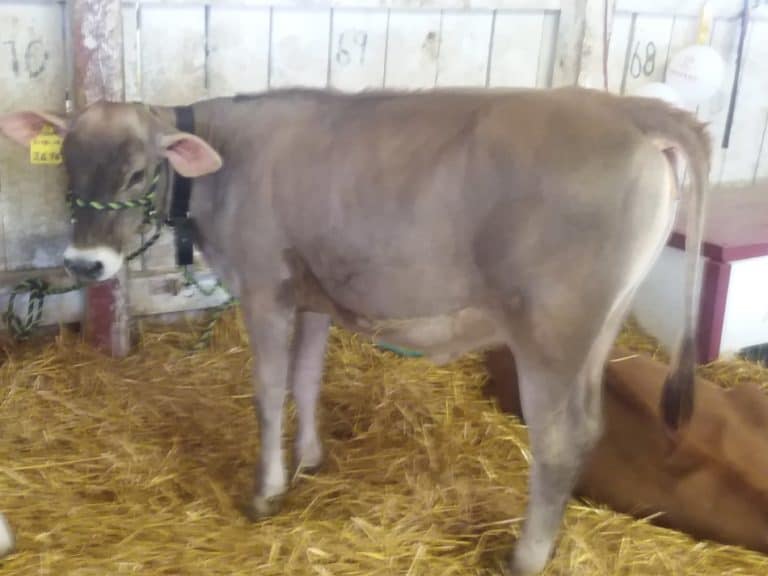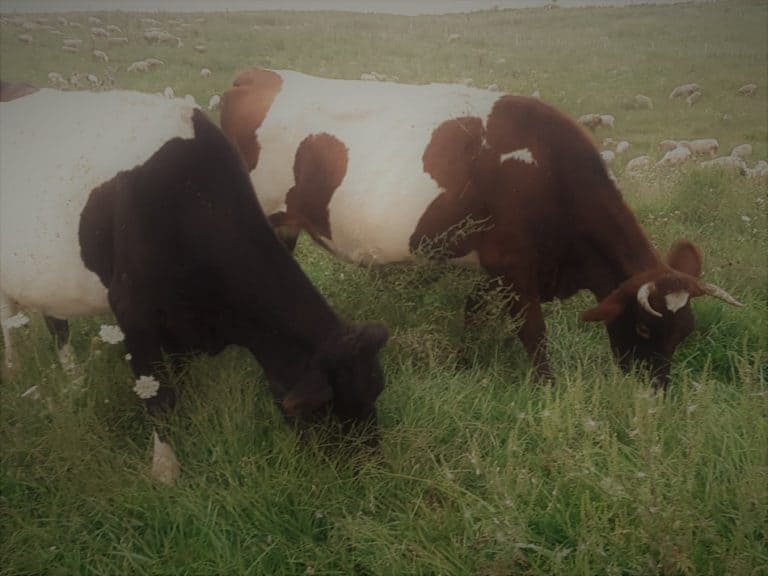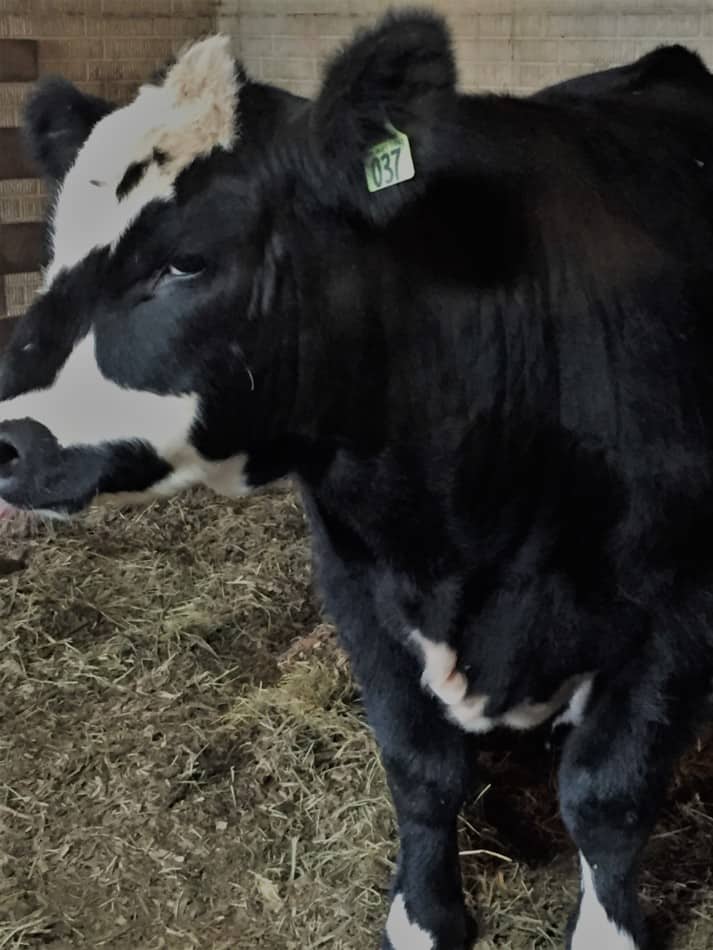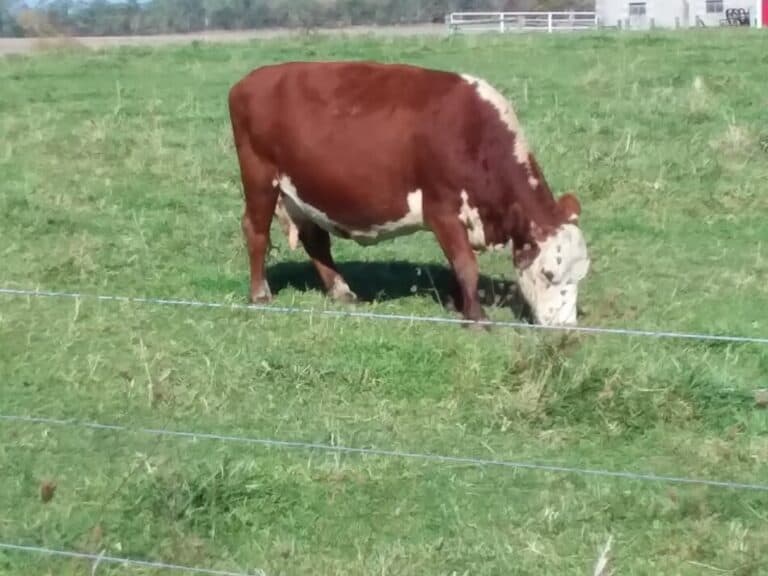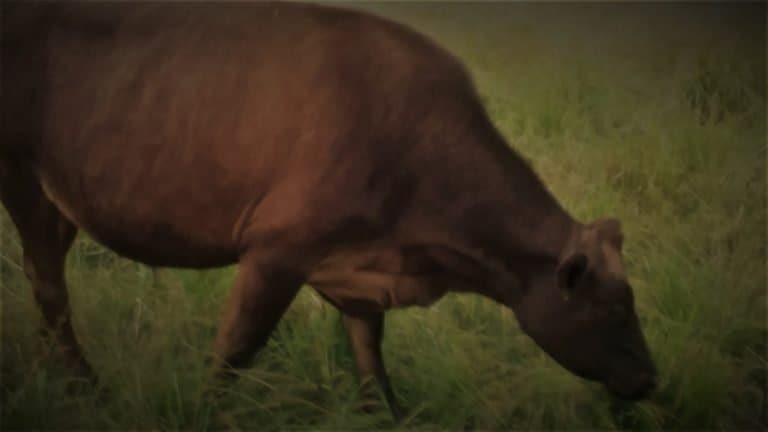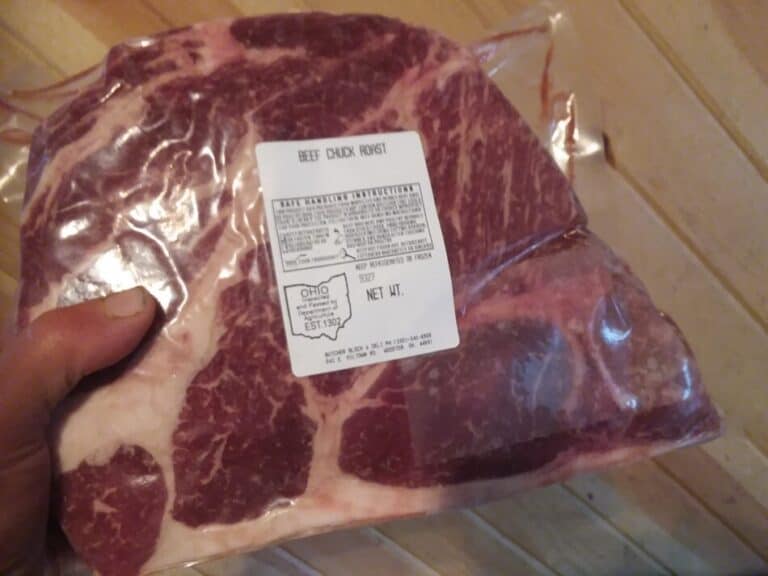Getting Started With Beef Cattle: Buying Your Starter Herd
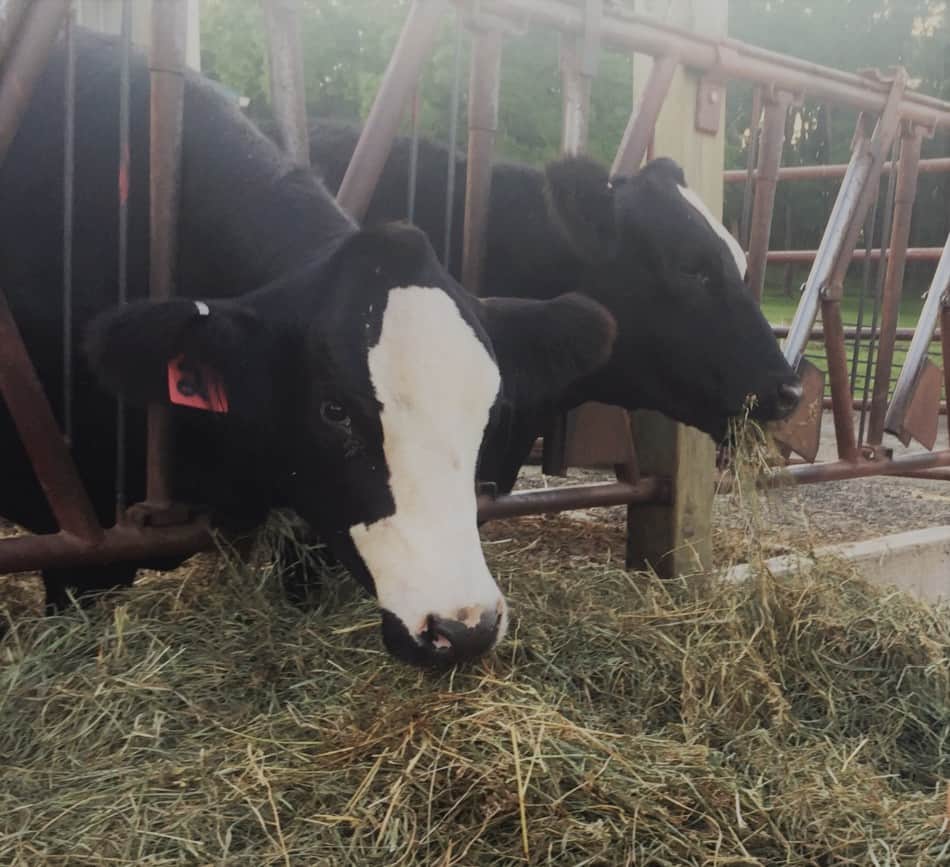
Getting started in cattle is an exciting time! The chance to get started right is even more exciting!
The best place to buy your first herd of beef cattle is from a like minded farmer/rancher.
Buying your first cattle is a wonderful opportunity and a big investment! You’ve got the chance to start successfully and continue on, each year, getting better.
And you also have the chance to start unsuccessfully, have a first few years of frustration and higher than needed culling in the herd because of poor decisions made at the beginning.
The choice is yours, start strong and keep going strong or start okay and deal with a lot of frustration. Well, I can tell you where I would want to start!
Let’s look into the basics of buying your cattle, things to look for and things to avoid so you can figure out where to buy your first few cows!
Trying to figure out what breeds to look at first? Read my article 14 Docile Breeds Of Cattle for some great options to get your started!
Beef Herd Feed Costs is a beginner style article I wrote to help new folks get a handle on the feed costs they will have for the new herd.
Buy your cattle from a farm
The best place, bar none, to buy cattle is from a cattleman raising his cattle the way you want to raise yours! It is really that simple!
Buy from a farm doing what you want to do
Cattle are selected each year for performance in a certain situation.
A farmer keeps a cow that does well in his area, breeds her to enhance traits that are important to him and chooses to keep replacement heifers out of her and cows that are performing like her.
If you are running your farm like he is running his, good news, his selections will be lining up with what you would do as well!
This is the perfect person to buy cattle from!
Buying Your Starter Herd Of Beef Cattle shows you the specifics you need to know to get great cattle from the get go.
Buying from a farm with differing goals
What if he is heavily selecting replacements and culling based on a handful of traits that don’t matter much to you?
While these will still be fine cattle, they will not work as well for you at your farm.
You will need to cull more heavily to get your cows to perform in your system if you decide to start with cattle that are being raised in a very different manner than you plan on raising them.
An example for your consideration
Let me give you an example: you decide to buy some cattle to get more use out of your grass.
Having a few easy care cows around sounds appealing and grass fed beef is all you are reading about online.
You decide to buy your first few cows from a neighbor. She’s a grain farmer, so selling grain fed beef is how she markets her cattle.
Her herd looks good and she mentioned last time you saw her that she was looking to sell a few head.
This is perfect, right? No, not really.
Allow me to explain: the good news here is she you see her and her animals frequently, the cows would be coming directly from a farm and she is close, all bonuses for you.
The not so good news, unless you are planning on feeding a lot of grain to your herd, these cattle are adapted to an easily available, high calorie diet.
They will need some adjustment time to develop into the “get it for themselves” grazers that you need.
Would her cattle work for you? Sure. Will they work well for you? That’s the bigger question and the answer is no.
You will have to do quite a bit of culling to make these cattle work well for your farm.
An extreme example
The extreme here is to think of beef cattle compared to dairy cattle.
If you wanted to milk cows for a living, you could use the beef cattle you have and over the course of generations keep the ones that perform the best for you.
It would take a while and quite a bit of culling, but it could be done.
Your other option would be to start out with a dairy cow that is already 99% of what you need.
Of course, you would still need to fine tune the genetics as you go but you would be years closer to your goal.
The simple difference is making sure the initial cattle purchase is made of cattle that suit your situation and goals.
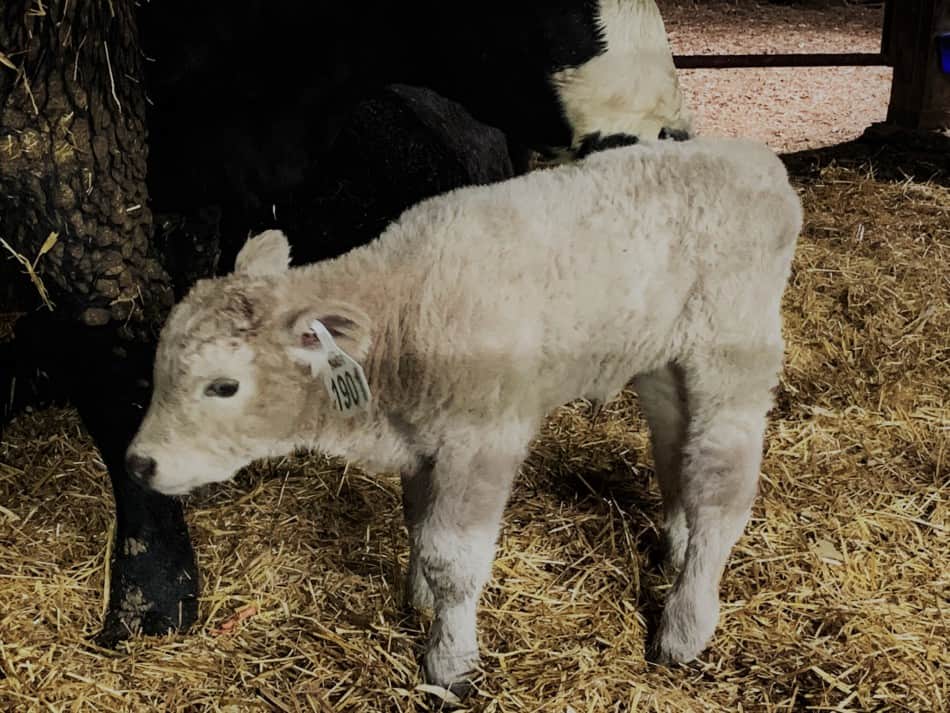
Start with the right genetics!
Do yourself a favor and start with cattle that are as close to what you want as possible.
Don’t let me mislead you here, you’ll still need to do some culling, no matter where you get cattle from. The difference is how much.
Back to the farm or breeding stock sale
A second option for getting started with cattle is a back to the farm or breeding stock sale.
While this is an option, it is a distant second to getting your cattle directly from a like minded cattleman.
This is a good news bad, news kind of a place to buy cattle.
Let’s start with the good news part: the good news of a back to the farm sale is that these cattle are all selected as replacement level cattle, these are not supposed to be culls.
Notice the supposed to be part, you are relying on the opinion of the seller.
Back to the farm cattle are good cattle that the farmer puts through a special part of the sale designated for the higher quality cattle.
The culls are either sold at a different time in the day, completely separate from the back to the farm cattle or they are not even at this sale, in the case of a breeding stock sale.
The bad news part is: these cattle are still unknown to you regarding their management and their genetics.
Once you get some experience you will be able to tell on sight which cattle are likely to work well for you and which are not.
Until then, get your cattle from the farm.
Check out Gerald Fry on my People You Should Know page, for a math based way to visually evaluate cattle.
I found his work to be truly insightful, a great resource!
Where NOT to buy cattle (auctions)
As far as purchasing cattle, or any livestock goes, the biggest obstacle to success is…you, specifically your inexperience.
Since you are new and don’t know what you are looking to get and needing to avoid, buying up the first cattle you come across is a recipe for disaster.
A regular livestock auction
The biggest “don’t do it, it’ll come back to bite you in the seat of your pants” move when looking for cattle is buying from a livestock auction. Don’t do it.
Are there good cattle that run through the sale ring every week? You bet. Will you be able to tell them from the rest? Not likely, and that is the problem here.
Think of it this way: if you had extra cattle that are great brood cows, you would put them up online, run an add in the paper or put up something on the local farm store bulletin board.
Maybe you would arrange for a special sale, still at the auction, that advertises the highlights of your herd.
The point here is you would put your name on and make sure to differentiate your high quality, breeding stock that you are offering for sale from the rest of the culls that are going through the sale that day.
It only makes sense, the cattle will get a better home and you will get more money for them.
If you would do a bit of extra work for your high quality extras, wouldn’t you think someone else would as well?
Differences in individual cattle
There can be huge differences in individual cattle, even within the same breed!
I know that is not the impression that you get from reading online or looking at breed specific information, but it’s definitely the case.
The closer the genetics of a herd, the less variation there will be between individuals, but there will always be some.
Another aspect of the differences between individuals is attitude. For me, this is a biggie.
I love a beautiful animal! But if she is flighty or “overly creative” (a nice way to say won’t behave like the rest of the group) then she is making my life harder and has to go.
Behavior is genetic, don’t keep any calves from the cows with difficult attitudes. That cow should be high on your cull list, as well!
Choosing potential brood cows
When I say breeders don’t get hung up on thinking I mean only purebred cattle.
Purebred cattle can be great, as can crossbred cattle. I’m referring to anyone keeping breeding stock cattle is a breeder.
The question is what breeder is selecting for traits that will be of the most use to you? Which cattle will be able to adapt the easiest to your situation?
Of course, this depends upon you and your situation! The more specific your needs, the fewer cattlemen will be raising their herds in a way that will work for you.
Let me be clear: you can purchase what ever cattle you want, it’s your money!
However, the closer you stick to getting cattle from a farm or ranch that is operating the way you want to operate, the higher chance that you’ll be happy with your purchase.
Any genetics can be adapted with time and effort.
A significant amount adaptation will require experimentation and the willingness to cull ruthlessly.
I don’t know about you, but I don’t care for being ruthless!
What To Look For When Buying Beef Breeding Stock is a Farmer’s Weekly article with some great tips. The image is a Brahma, don’t let that throw you, the basics of great cattle are the same regardless of breed.
There is no “perfect” cattle breed
Don’t believe the claims of the perfect breed or the best breed, etc. I’m sure that the folks telling you this are being sincere and mean what they say.
What I am referring to is the part they left out.
What’s left out, you ask? You. You, your farm, your resources and your goals.
The wonderful and enthusiastic people who love the cattle they are raising can not know if those cattle will work for you.
They are speaking of personal experience and the great fit they have found with these particular cattle fitting their farm and their livestock goals.
This is super! I love it when people are able to enthusiastically recommend their livestock or their methods to others!
So far, this sounds great, why the caution? Here’s the catch: will these same cattle work for you? They might, but they might not.
The trick to it all and the huge win for you and your farm is choosing cattle that match what you and your farm need!
Do your research, think things through.
There is no best breed, there is the best breed (or cross) for the situation. Now you have the opportunity to find it!
